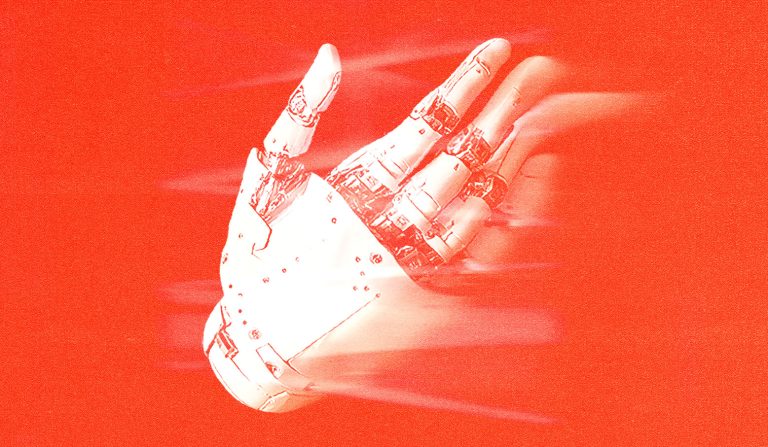The conversation around search advertising has reached a new fever pitch thanks to recently launched AI-powered tools like Perplexity and Google AI Insights. Despite the buzz, some marketers and advertisers remain uncertain about AI tools in search, citing too many unknowns. That said, some don’t want to be first movers until these tools are proven to be effective in terms of reach and return on ad spend.
Search has seen a surge of interest recently with new entrants like TikTok and (perhaps) Reddit taking shape in the shadow of Google’s dominance. A federal judge ruled in August that the tech giant monopolized the search advertising market. Most recently, the DOJ is in the middle of another lawsuit against Google’s ad technology. While the antitrust case over ad tech is ongoing, competitors have released new advertising tools (some of which incorporate AI), but the ad dollars have yet to start flowing.
That said, the DOJ is not alone in challenging Google’s dominance. There are other competitors, including TikTok’s new search offering, search engine Perplexity AI, and Microsoft’s latest advertising tools for Copilot, Bing, and Edge. Still, it remains to be seen whether any of them will be able to put a dent in Google’s search dominance, even with the lure of AI-powered search.
“What we’re getting from partners is preliminary data … on the success they’re seeing with certain types of campaigns,” said Dan Toplitt, vice president, head of research and digital experience at Kinesso performance marketing agency. Toplitt did not offer specific partners, saying Kinesso is “partner agnostic.” He added: “It’s still early in terms of measuring for us as advertisers to isolate some of these new ad units versus the more traditional ad units,” referring to Google’s challengers.
The advent of artificial intelligence has sparked renewed interest in search ads among marketers, who are turning to AI to more effectively target online shoppers. But, Toplitt adds, marketers need additional metrics to be confident enough to allocate additional budgets. There are even new KPIs to take into account. For example, Perplexity would charge based on CPMs. (which would cost north of $50, according to Digiday’s recent report) rather than CPCs, which are the usual approach to paid search, by leader. This seems to indicate that Perplexity measurement may be based more on brand reach and exposure rather than clicks or impressions.
“It’s philosophically a really interesting thing to put together, because it has the potential to impact how we use research in the broader media mix, how we buy research versus other channels,” Toplitt said.
There are also concerns about brand safety and consumer backlash, according to Brandy Alexander-Wimberly, director of client innovation at digital agency TandemTide. The AI hype cycle has given way to questions about accuracy, hallucinations, and data privacy. If the line between AI-generated ads or sponsored posts and authentic content sources blurs, there is a risk of blowback that could impact ad performance, she added.
In terms of budget, Alexander-Wimbley said TandemTide uses AI-based tools integrated with major platforms, like Google, and allocates between 25 and 50 percent of said budgets, depending on the client’s goals, for testing and learn, even if she did. does not give precise figures.
For now, advertisers are testing and learning organically with AI in search – or using already existing search budgets. AI tools available in the market are not attractive enough to move advertising dollars, according to industry experts. In particular, budgetary constraints persist which weighs on the industry in which Marketers are continually asked to do more with less in the light of economic headwinds.
“It would certainly be interesting to test, but in terms of immediate plans on where we invest dollars in the most effective places, that has been left aside for the fourth quarter from our perspective,” he said. said Brandon Biancalani, head of paid media at Modifly, a media and creative performance agency.
Pin it on pricing and performance, executives say. Competitors like TikTok may be gaining ground in search, but Google remains the dominant search engine, at least for now. According to Statista, Google accounted for 80% market share compared to Bing, Yahoo, DuckDuckGo and others. And where eyes go, advertisers follow. Additionally, the launch of Google’s AI Previews in May makes it a one-stop shop for advertisers.
Industry executives say they are hesitant to invest in these tools until more users adopt the technology and companies like Perplexity or TikTok can clarify what success metrics look like to determine ROI. advertising expenses.
But agencies should be flexible enough to pivot and implement dedicated spends or leverage experimental budgets, should a use case arise, said Phil Lewicki, associate director of media at marketing agency Dagger. “(We) are always monitoring the market to see what’s happening, not wanting to be the first group to launch and see results due to cost and some unknowns.”


